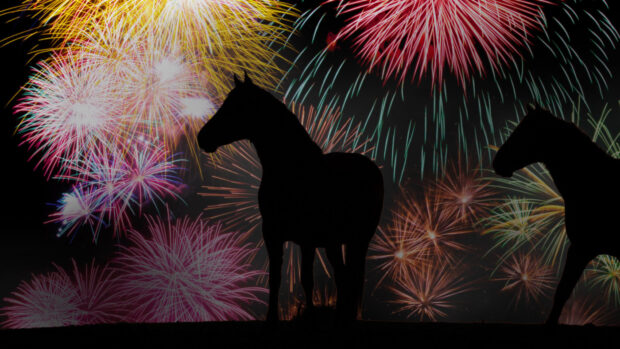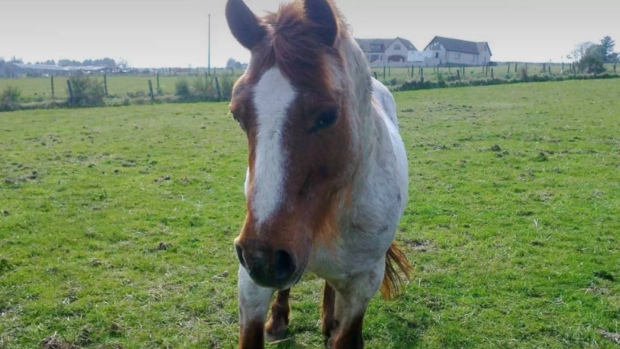LAST year, we had the most horrendous night of our lives on bonfire night. Our house is 20 metres from the road and our stable block 64m from it. In the evening, our neighbours on the opposite side of the lane started letting off fireworks less than a foot away from their fence, which is right next to the road. The fireworks were the largest I’ve ever seen and were coming straight over our house, each exploding up to eight times above the stable.
After I’d spent 45min trying to calm down our six horses, who were either shaking or climbing the walls in fright, I approached the neighbours to ask for how much longer this was going on.
The display stopped shortly after I threatened to call the police because they were discharging fireworks too close to the highway. The next morning, we found burnt-out fireworks around the stable and barn.
This year, I plan to put up notices asking the neighbours to let us know when they plan to let fireworks off as a courtesy and to make sure they are directed away from our property. I am not a killjoy, but this behaviour is far from acceptable and dangerous.
What are our rights to protect ourselves, our animals and our property?
LH, Worcestershire
Regrettably fireworks legislation does not seek directly to protect animals, but there are a number of laws that offer limited protection from fireworks.
The Fireworks Regulations 2004 (made under the Fireworks Act 2003) states that:
• Adult fireworks — these are “any fireworks except for a cap, cracker snap (Christmas cracker), novelty match, party popper, serpent, throw-down or sparkler”, according to the regulations — must only be used between 7am and 11pm, although this limit is extended to midnight on 5 November.
• A maximum of 120 decibels has been imposed on fireworks in category 3 (larger fireworks).
“These regulations are enforced by the police and there is a penalty of up to £5,000 or six months in prison for breach of the curfew,” explain Laytons.
• “The Explosives Act 1875, Section 80, states that it is an offence to throw or set off any fireworks in any highway, street, thoroughfare or public place. Enforcement rests with the police and the penalty is a fine up to £5,000, although fixed penalty notices (on-the-spot fines) may also be issued.”
“And, of course, the Protection of Animals Act 1911, Section 1, states that it is an offence to cause any unnecessary suffering to any domestic or captive animals. Enforcement rests with the police, RSPCA and trading standards. If convicted, the penalty is a fine of up to £5,000 and/or maximum six months’ imprisonment.
So, in addition to your suggestion about putting up notices, you might consider putting a polite request in the village newsletter or local newspaper before bonfire night, asking people to consider horses and other animals when organising and executing events.
InformationThis Q&A was first published in Horse & Hound (12 October, ’06)


